
|
|
|
Sponsors

|
Chair "Financial Risks" |
| Back in 2007, when the "Financial Risks" Chair was created by l’X, Société Générale, École des Ponts ParisTech and Pierre and Marie Curie University, the first symptoms of the subprime mortgage crisis had just been detected in the United States. This Chair is devoted to research, knowledge dissemination and education on financial risks. It covers a wide range of research subjects, including improving digital methods used by financial institutions, studying ways to prevent and control risks, creating new tools for statistical arbitrage, pricing complex derivatives, and researching credit derivatives. | |
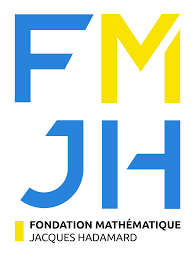
|
Mathematical Foundation Jacques Hadamard (FMJH) |
| The Mathematical Foundation Jacques Hadamard (FMJH) was created in 2010 by decree of the French Prime Minister with resources from an initial non-expendable capital endowment of 40 million euros as part of the Campus operation. Its objective is to lead a project of scientific excellence in the field of mathematics and its interactions. It thus contributes to the development and structuring of the scientific policies of its members in all matters relating to mathematics. | |
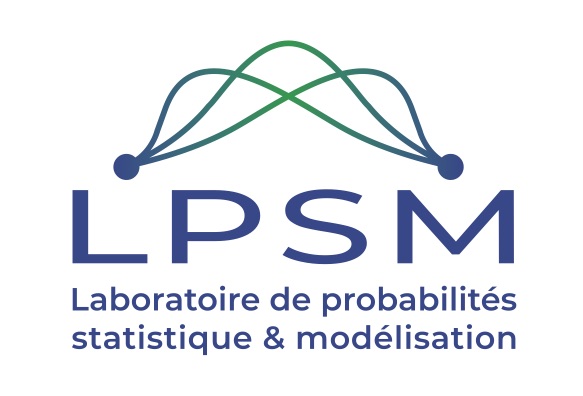
|
LPSM (Laboratoire de probabilités statistique & modélisation) |
| The LPSM is a research unit jointly supported by CNRS, Sorbonne Université and Université Paris Cité. The unit hosts about 200 members (about 90 faculty) and is located at two sites (Campus P. et M. Curie of Sorbonne Université et Campus Paris Rive Gauche of Université Paris Cité). The LPSM research activities cover a broad spectrum in Probability and Statistics, from the most fundamental aspects (which, in particular, include Stochastic Analysis, Random Geometry, Numerical Probabilities and Dynamical Systems) to applications in the Modelling in various disciplines (Physics, Biology, Data Sciences, Finance, Insurance, etc). Applications involve partnerships with the non-academic sector. While the unit LPSM is relatively recent, its components have deep roots in the rich history of the “mathematics of randomness” that has unfolded in Paris during the 20th century (see here for more details). | |

|
Chair “Stress Test: Risk Management and Financial Steering" |
| The Chair “Stress Testing” is a specific research program, hosted by the Center of Applied Mathematics between Ecole Polytechnique, BNP Paribas, Fondation de l'Ecole Polytechnique. This research project is part of an in-depth reflection on the increasingly sophisticated issues surrounding stress tests (under the impulse of the upcoming European Banking regulation). Simulation of extreme adverse scenarios is an important topic to better understand which critical configurations can lead to financial and systemic crises. These scenarios may depend on complex phenomena, for which we partially lack information, making the modeling incomplete and uncertain. Last, the data are multivariate and reflects the dependency between driving variables. Lines of research: Generation of stress test and meta-modeling scenarios using machine learning; Quantification of uncertainties in risk metrics; Modeling and estimation of multidimensional dependencies. | |

|
Sorbonne Université |
| Sorbonne University is a multidisciplinary, research-intensive, world-class university. Located in the heart of Paris, with a regional presence, it is committed to the success of its students and to meeting the scientific challenges of the 21st century. Thanks to its 55,300 students, 6,400 academic researchers and partner researchers, and 3,600 administrative and technical staff who make it a daily reality, Sorbonne University promotes diversity, creativity, innovation and openness to the world. | |

|
Université Paris Cité |
| At the heart of a global network of knowledge and innovation, Université Paris Cité is France’s leading multidisciplinary university. It covers a wide range of disciplines, with one of the most comprehensive and ambitious educational offerings available in the world. Université Paris Cité is part of the incarnation of a world city, aware of its place and missions, open to youth and knowledge. Born in 2019 from the merger of the universities of Paris Diderot, Paris Descartes and Institut de physique du globe de Paris, the ambition of Université Paris Cité is to lead and develop an exceptional potential to meet the challenges of tomorrow’s society. With a recognized international standing, as well as a strategic portfolio of privileged academic partners throughout the world, it offers its students state-of-the-art, innovative courses in the following field : Arts, Humanities and Languages; Human, Economic and Social Sciences; Science and Technology; Medicine , Dentistry, Pharmacy and Nursing. Université Paris Cité is fully engaged in an experience that brings together thought leadership, pedagogical innovation in education, and excellence in research at the graduate level. | |

|
Labex Bézout |
| The Bézout Labex specializes in research on the cutting edge between mathematics and computer science. It includes three laboratories located East of Paris in Marne-la-Vallée and Créteil – CERMICS and LAMA, which specialize in mathematics, and LIGM, which specializes in computer science. These laboratories bring together 170 active permanent researchers and a number of PhD students. | |

|
INRIA |
| Inria is the French national research institute for digital science and technology. World-class research, technological innovation and entrepreneurial risk are its DNA. In 200 project teams, most of which are shared with major research universities, more than 3,900 researchers and engineers explore new paths, often in an interdisciplinary manner and in collaboration with industrial partners to meet ambitious challenges. As a technological institute, Inria supports the diversity of innovation pathways: from open source software publishing to the creation of technological startups (Deeptech). | |
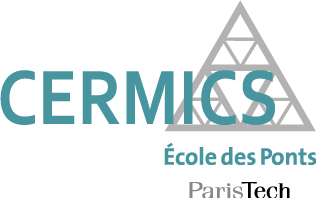
|
CERMICS (Centre d’Enseignement et de Recherche en MathématIques et Calcul Scientifique) |
| CERMICS is the research center in applied mathematics of Ecole des Ponts ParisTech. It hosts joint project-teams with Inria Paris and University Gustave Eiffel, and is part of the Bézout CNRS Federation and the doctoral school MSTIC. Researchers are working in three main areas: Applied Probability; Modeling, Analysis and Simulation; Optimization. The originality of the center lies in its ability to build bridges between deterministic and stochastic approaches and to produce both theoretical results and numerical methods, with strong interactions with industrial partners from various domains (transport, energy, finance, engineering, pharmaceutical companies) and academic scientists from other fields (biology, chemistry, physics and material sciences). | |
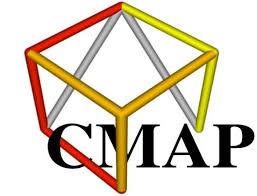
|
CMAP (Centre de Mathématiques Appliquées) |
| Since its creation in 1974, the Centre de Mathématiques Appliquées (UMR 7641) aims at the development and the exploration of mathematics in relation with their applications. The opening of the CMAP to other disciplines can be seen through the variety and the complexity of the research topics which are addressed. Its organisation allows the different groups to initiate and explore new topics. The research areas of CMAP are in tight relation with some problematics in physics, mechanics, chemistry, biology and health, finance, but also in social sciences, economics and information technologies. The essence of the research led at CMAP follows the cycle : modelling, mathematical analysis, numerical simulations, visualisation and then refinement of the modelling. Each step of the cycle use the expertise of the membres of the lab. The CMAP is organised in 10 groups covering its research domains, grouped into 3 main topics: Stochastic Modelling; Partial Differential Equations and Scientific Computing; Control, Information Sciences and Technologies. | |
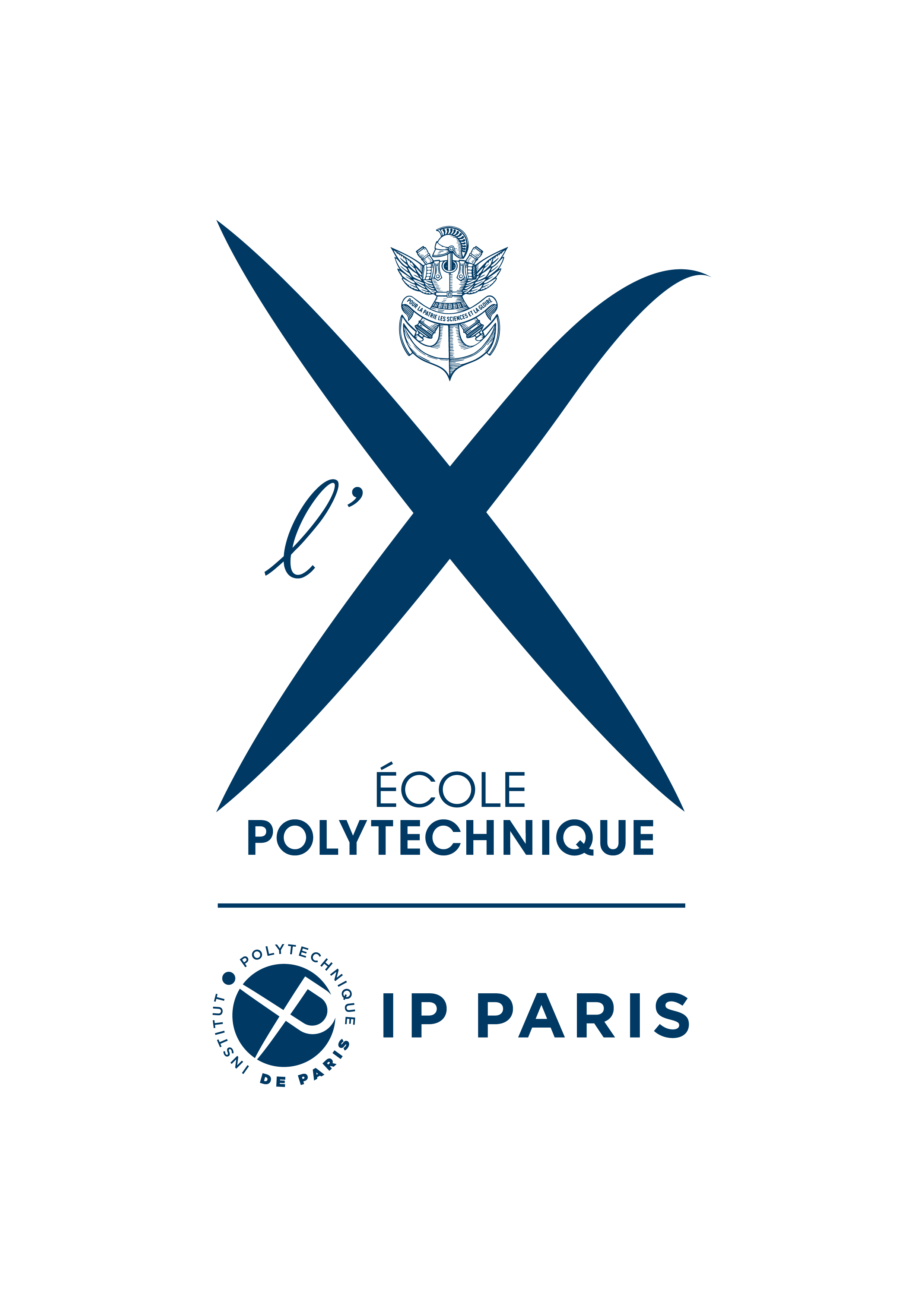
|
École Polytechnique |
| Since its creation in 1794, École Polytechnique has been producing and sharing multidisciplinary knowledge at the highest level, for its students, for companies and for society, by developing an entrepreneurial spirit, boldness and a sense of general interest in its three fundamental missions of education, research and innovation. In a globalized higher education and research environment that is both competitive but also open and collaborative, École Polytechnique has inscribed its future within Institut Polytechnique de Paris. Created in June 2019, Institut Polytechnique de Paris is a public institution of higher education and research, encompassing 5 prestigious French engineering Schools: École Polytechnique, ENSTA Paris, ENSAE Paris, Télécom Paris, Télécom SudParis. Since its creation, IP Paris has established itself as a world-class institution of higher education and scientific and technological research, capable of attracting the best French and foreign researchers and students, and thus being an essential driving force for France's power and influence. |

